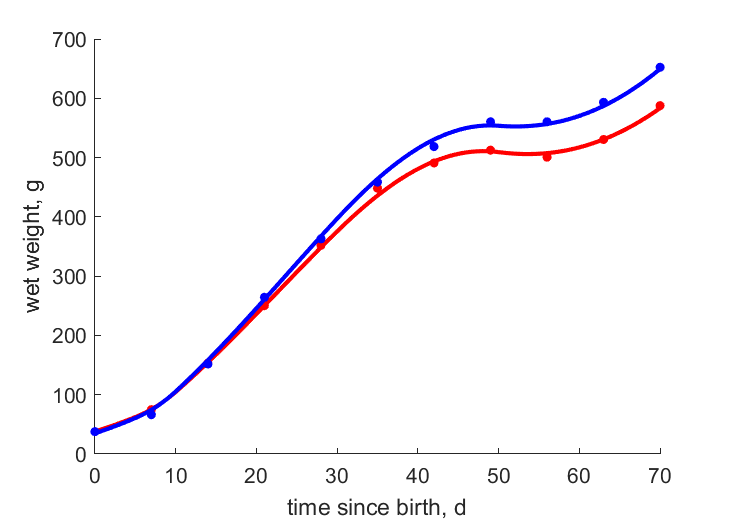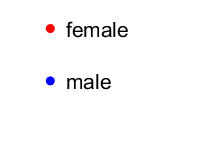Predictions & Data for this entry
| Model: std | climate: Cfb, Dfc | migrate: Ms | phylum: |
| COMPLETE = 2.5 | ecozone: THp | food: biCi, biCim | class: |
| MRE = 0.036 | habitat: biFp, biFm | gender: Dg | order: |
| SMSE = 0.002 | embryo: Tnsf | reprod: O | family: |
Zero-variate data
| Data | Observed | Predicted | (RE) | Unit | Description | Reference |
|---|---|---|---|---|---|---|
| ab | 26.5 | 28.53 | (0.07669) | d | age at birth | ADW |
| tx | 52.5 | 52.31 | (0.003707) | d | time since birth at fledging | ADW |
| tp | 157.5 | 155.6 | (0.01237) | d | time since birth at puberty | guess |
| tR | 365 | 365 | ( 0) | d | time since birth at 1st brood | AnAge |
| am | 1.65e+04 | 1.667e+04 | (0.01045) | d | life span | AnAge |
| Wwb | 37.5 | 34.42 | (0.08211) | g | wet weight at birth | Kear1970 |
| Wwi | 701.5 | 771.1 | (0.09916) | g | ultimate wet weight | AnAge |
| Ri | 0.02466 | 0.02348 | (0.04781) | #/d | maximum reprod rate | ADW |
Uni- and bivariate data
| Data | Figure | Independent variable | Dependent variable | (RE) | Reference |
|---|---|---|---|---|---|
| tW_f |   | time since birth | wet weight | (0.008631) | Kear1970 |
| tW_m |   | time since birth | wet weight | (0.01458) | Kear1970 |
Pseudo-data at Tref = 20°C
| Data | Generalised animal | Aythya fuligula | Unit | Description |
|---|---|---|---|---|
| v | 0.02 | 0.02077 | cm/d | energy conductance |
| p_M | 18 | 1438 | J/d.cm^3 | vol-spec som maint |
| k_J | 0.002 | 0.05904 | 1/d | maturity maint rate coefficient |
| k | 0.3 | 0.3006 | - | maintenance ratio |
| kap | 0.8 | 0.726 | - | allocation fraction to soma |
| kap_G | 0.8 | 0.8002 | - | growth efficiency |
| kap_R | 0.95 | 0.95 | - | reproduction efficiency |
Discussion
- males are supposed to differ from females by {p_Am} only
- mod_1: v is reduced; food availability taken variable in tW data
- mod_2: males have equal state variables at b, compared to females
- mod_1: Pseudo-data point k is used, rather than k_J; Data set tp and parameter t_R are added, the latter replacing clutch interval t_N. Postnatal T is based on PrinPres1991, see get_T_Aves. See further the revision page, theme puberty
Bibliography